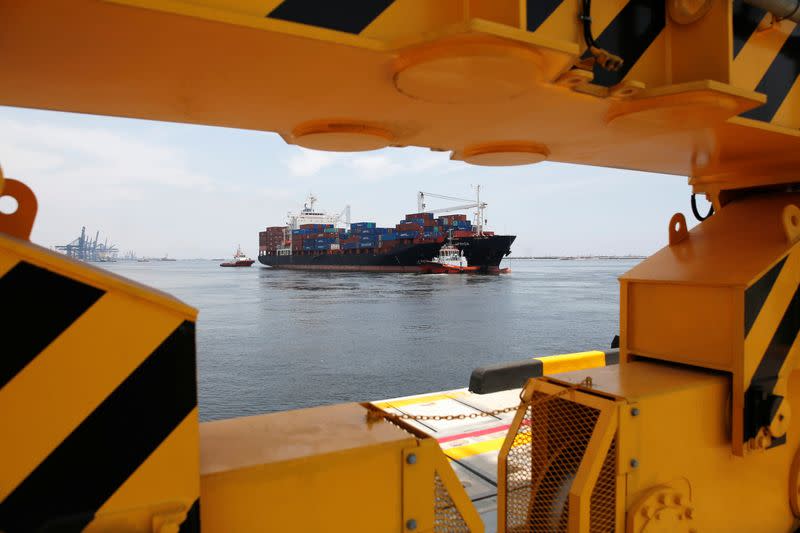Indonesia's May trade surplus to shrink to $3.02 billion - Reuters poll

JAKARTA (Reuters) - Economists surveyed in a Reuters poll expect Indonesia's May trade surplus to shrink from the previous month, following a decline in exports because of weakening commodity prices.
The median expectation of the 19 economists was for the trade surplus in Southeast Asia's biggest economy to fall to $3.02 billion from $3.94 billion in April.
Although Indonesia has enjoyed a monthly trade surplus since mid-2020, economists expect the trend to gradually decline this year due to the fall in commodity prices.
Economists in the poll predicted May exports to fall 8.7% on an annual basis, although the contraction is less than 29.4% the previous month, because of a low base effect.
May imports were also seen declining 11% from the corresponding month last year, versus April's contraction of 22.32%.
Both exports and imports last month were still seen contracting because of a global economic slowdown, said Bank Mandiri economist Faisal Rachman, who forecast a trade surplus of $3.07 billion in May.
"The combination of falling commodity prices, subdued global economic environment, and domestic politics triggers a wait-and-see action in investment and production activities," he said.
However, in month-on-month terms, both exports and imports were seen to have posted growth in May, Rachman added, as economic activity returned to normal after the April holiday of Eid al-Fitr that ended the Muslim fasting month of Ramadan.
(Polling by Anant Chandak and Madhumita Gokhale; Writing by Stefanno Sulaiman; Editing by Clarence Fernandez)

 Yahoo Finance
Yahoo Finance 